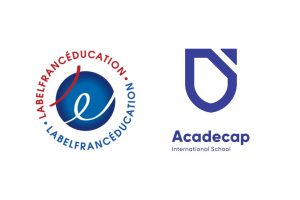SMILE: AcadeCap’s Literacy Programme
Formerly known as the SLT (Simultaneous Literacy Teaching) Programme
Description of programme
Using the Systematic Multisensory Intensive Literacy Education (SMILE) programme, teachers work, individually or in a small group, with children who require additional reading and/or spelling instruction. The SMILE programme uses a systematic multisensory reading and spelling method, All About Reading© and All About Spelling©, based on the Orton-Gillingham approach and Orton-Gillingham teacher developed strategies adapted to each learner.
The SMILE lessons are sequential and incorporate the use of specialized materials (such as phoneme and grapheme cards, magnetic boards and letters, Braille-like and sandpaper letters, mirrors, pencil frames, specialized workbooks and readers, playdough, highlight strips, cursive writing tool, phonemic games, and keyboarding) to ensure that various senses are stimulated simultaneously.
SMILE and Classroom Accommodations
A student in the SMILE programme is concurrently accommodated, with multisensory learning and with assistive technology supports, in all areas of the curriculum, based on teacher monitoring, documentation, analysis and measuring of student success on tasks that link with each subject and/or grade level expectations and on demonstrated learning behaviours. As the learning demands of the curriculum increase (e.g., early struggles to read single words are often followed by difficulties learning math facts, spelling problems, and difficulties understanding what is read, including mathematical word problems) the instruction and the accommodations are differentiated and implemented, accordingly.
Some classroom accommodations include: using coloured paper, scribing, evaluating orally, allowing more time to complete assignments and assessments, preparing handouts with larger print and special fonts, using assistive technology supports, etc.
AcadeCap International School’s ratio of small groups of students to homeroom teachers and specialists makes this multisensory differentiated approach practicable.
Educators
Our teachers are trained in the Orton-Gillingham approach in accordance with the goals and guidelines outlined by the Academy of Orton-Gillingham Practitioners and Educators (AOGPE). AcadeCap International School is a member of the International Dyslexia Association.
From the start of attendance at AcadeCap, homeroom teachers, specialists and OG- trained teachers put in place many accommodations for a student, often overlapping those recommended in psycho-educational assessment reports. This is possible since AcadeCap teachers are seasoned highly educated and well-trained professionals, many in the field of first and second language teaching.
The director holds a master’s degree in second language teaching with a specialization in reading, an AQ specialization in teaching FSL, and a B.A. in linguistics applied to language teaching. With 40 years of experience in teaching languages in public and private schools, she keeps abreast of all research linked to language learning, including dyslexia.
AcadeCap teachers are required to be most knowledgeable and experienced when it comes to pedagogy; this is why AcadeCap invests in on-site and online teacher training by recognized professionals and leaders in their field, attend cutting-edge research and best practices conferences and seminars by International Dyslexia Association, AOGPE, the International Baccalaureate and ASCD.
SMILE and AcadeCap’s approach to learning
A student in the SMILE programme, and concurrently learning in the IB PYP, our pre-secondary (middle school) or secondary school programme, benefits from a curriculum with a multisensory inquiry-based approach enabling learners to develop and deepen conceptual understandings, to acquire subject knowledge, and to develop the learning and life skills relevant to this day and age.
Additional information
If you think you may qualify for a medical expense tax credit, a disability tax credit or a disability support deduction for your child – more details can be found at the following links:
S1-F1-C1: Medical Expense Tax Credit
http://www.cra-arc.gc.ca/tx/tchncl/ncmtx/fls/s1/f1/s1-f1-c1-eng.html
S1-F1-C2: Disability Tax Credit
http://www.cra-arc.gc.ca/tx/tchncl/ncmtx/fls/s1/f1/s1-f1-c2-eng.htm
S1-F1-C3: Disability Support Deduction
http://www.cra-arc.gc.ca/tx/tchncl/ncmtx/fls/s1/f1/s1-f1-c3-eng.html

